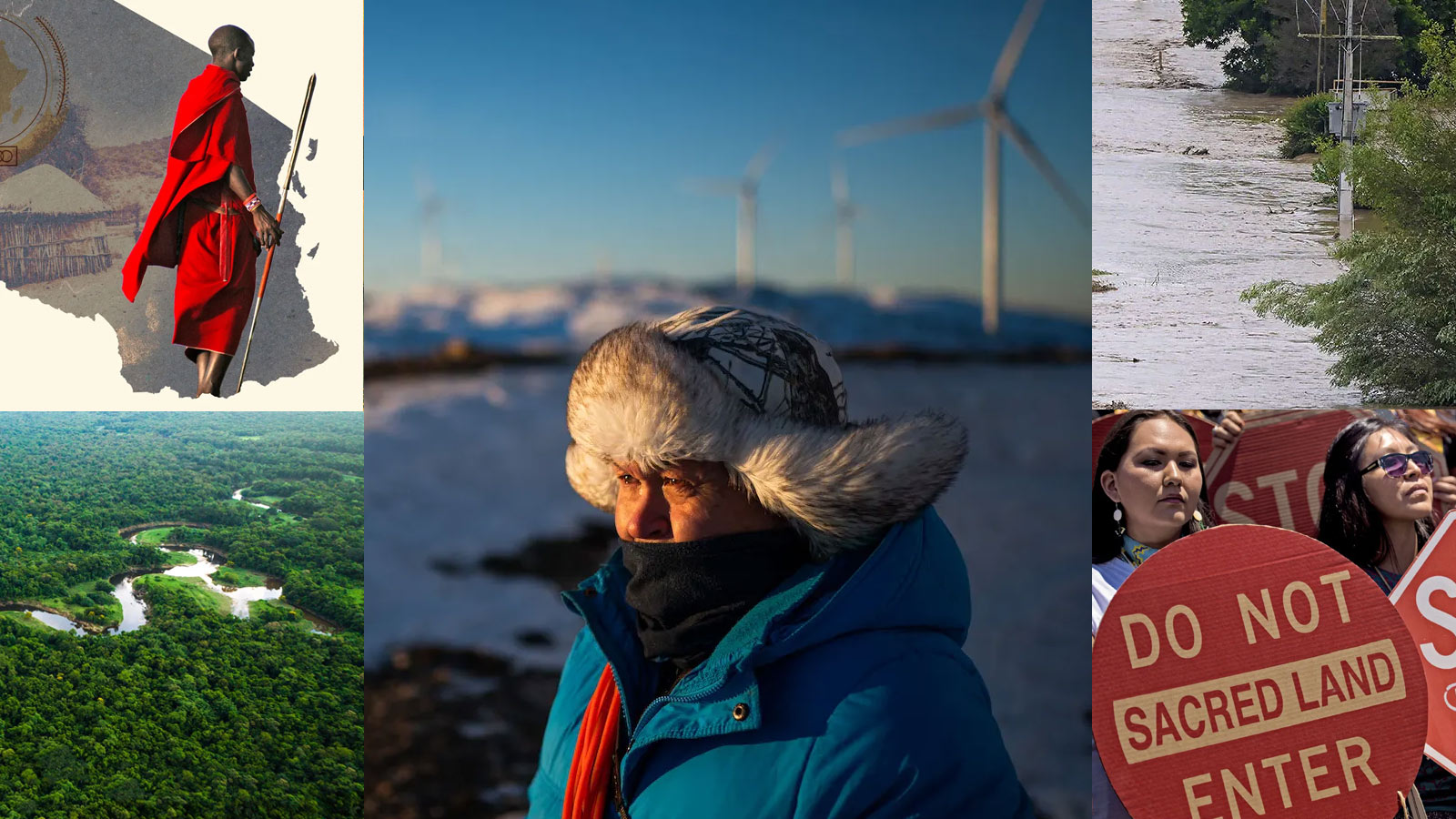Every year since 1993, August 9 has served as the International Day of the World’s Indigenous Peoples, launched by the United Nations to honor Indigenous Peoples rights “to make their own decisions and carry them out meaningfully and culturally appropriate to them.” To mark this occasion, Grist is celebrating its Indigenous affairs desk: Indigenous-led and staffed, our team is the only one of its kind focused on climate and the environment.
“We are proud of the work we’ve done at Grist over the last two years,” said Tristan Ahtone, Grist’s editor at large. “We look forward to the coming years to finding more opportunities to connect with Indigenous affairs reporters across political borders to seek stories and projects determined by us and for us.”
Our newsroom’s Indigenous affairs coverage spans the globe, and ranges from breaking news to culture stories to long-form investigations.
Highlights include:
- Indigenous-led lawsuits to stop greenhouse gas emissions
- In Scandinavia, Indigenous struggles against a Norwegian windfarm and a mine in Sweden
- Environmental threats caused by military bases to Indigenous Ryukyuans in Japan
- Rights-based solutions to climate change in Brazil, and the threats Indigenous communities face
- Ongoing coverage of evictions of the Maasai in Tanzania for conservation purposes
- “Gift” certificates for Aboriginal land in Australia
- The reclamation of Indigenous land in Peru
- Wet’suwet’en protester arrests and mercury poisoning in Canada
- Fatalities of land and environmental activists
- Disaster relief for Māori communities in New Zealand
- Coverage of the United Nations Permanent Forum on Indigenous Issues
- The fight of the San Carlos Apache tribe against an Arizona copper mine
- How “fortress conservation” harms Indigenous communities
- And how the 30 x 30 movement collided with Indigenous land rights.




